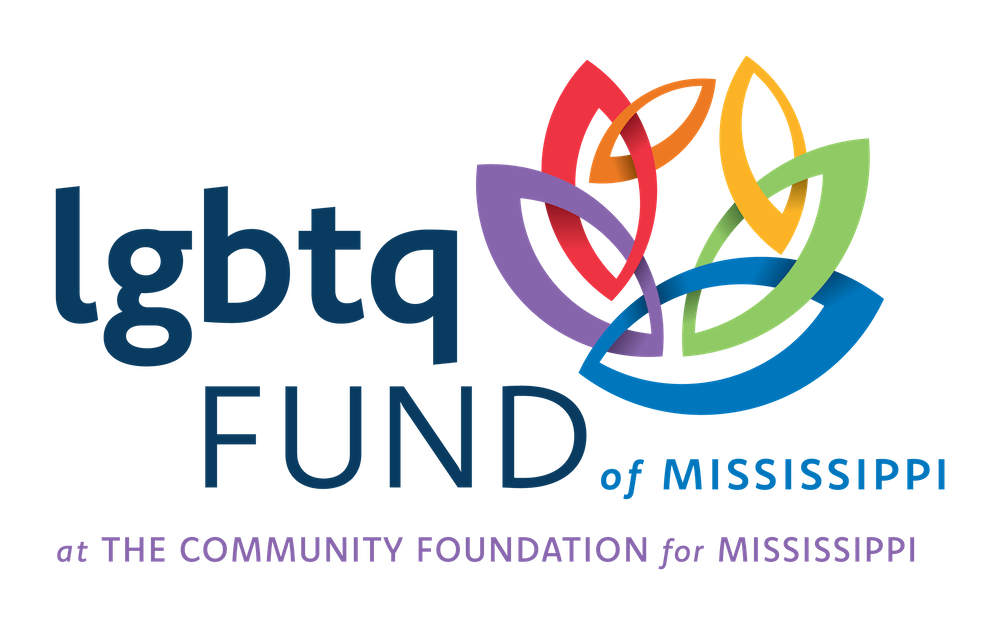

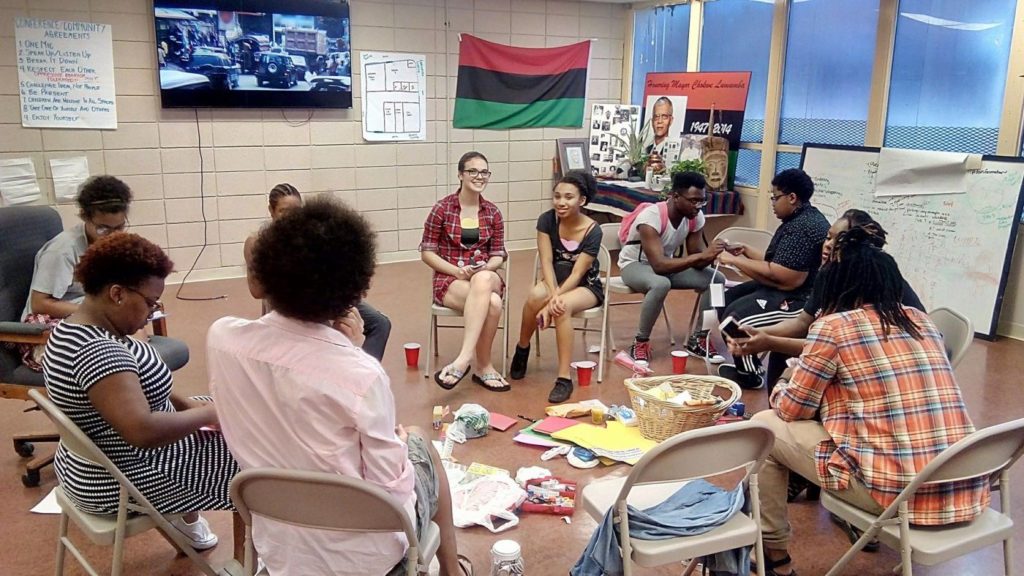
Mississippi Safe Schools Coalition is a nonprofit organization that began in 2008 to help community groups do youth organizing. The majority of the work MSSC does is made possible through volunteers, and they have always prioritized being an organization led by young people for young people. In the past, most of the work they have done has focused on community action protests, speaking out against cases like HB1523 or instances where teens were disallowed from attending prom with same-sex dates.
Jack Hoda and board co-chair Ericka Williams, along with the rest of the MSSC team, have been working hard to connect with LGBTQ teens throughout the state and be an advocate for youth at their schools, and they typically help LGBTQ students create support groups like Gay-Straight Alliances or Gender and Sexuality Alliances (GSAs).
They will be using the LGBTQ Fund grant money for their Queer Youth Organizations Program, where they will hire and train LGBTQ teens throughout the state to push for policy and practice changes at their schools, creating safer schools for LGBTQ youth. This could be done by starting a GSA, if they don’t have one at their school, or formalizing a GSA if they do have one. There are also specific handbook changes that can be implemented, such as detailed bullying policies and bullying reporting procedures or having gender inclusive language.
“The whole mission of MSSC is that youth should be the voices leading the movement, leading the work. The goal of the Queer Youth Organizations Program is to not only support youth doing that, but to develop them and fund them, because they deserve pay for what they’re doing,” said Hoda.
MSSC is a statewide project that aims to connect students, teachers, and community members to one another throughout Mississippi, and the majority of their work happens at schools where GSAs already exist.
“I came out in high school, and it was a really traumatic time for me, and a really dangerous time for me. Having peers around me that had that kind of knowledge that we’re trying to teach youths through this program helped me start a GSA and create a space for me to be myself. It’s just so important to have that happening in every school that we can, because the students need the support and the space to be themselves and to lead. But the schools also need the students to step up and to be leading change, because that kind of change doesn’t really just happen unless students push for it,” said Hoda.
The leadership team of the program is called the Queer Youth Advisory Board, so the organization is actually governed by LGBTQ youth. No one older than 35 is on the board, so it helps them stay grounded in the contemporary moment and the ideology of youth. All of the work is informed by people actually living the experience.
“As much as it may not seem visible, there are tons of queer and trans youth in Mississippi. A lot of them are in rural schools, where they may have a graduating class of 50 people and they have absolutely no LGBTQ support, mentors or infrastructure in their community, let alone their school. That can be so detrimental to the kids that we have growing up in the state, and that’s what MSSC is working to change. It’s gonna be a slow, daunting effort, but every little bit counts. Every inch that we spread out throughout the state can make a huge difference in one kid’s life, and that one kid makes it all worth it,” said Hoda.
“For me, wellbeing looks like there not being a space in Mississippi where LGBTQ people don’t feel welcome and included, even in our most rural places or impoverished places, even in our wealthiest places. Especially in places like the state capital, where decisions are made and peoples’ lives are most impacted. I would love to see more LGBTQ people included in those decisions, and I think for MSSC, it looks like no child, no student, no teen coming through our school systems and feeling excluded or threatened or unsafe,” said Hoda.
To learn more about Mississippi Safe Schools Coalition and how to volunteer with the organization, visit their website, Facebook, Twitter, or Instagram.
Grantee Spotlight: UMMC TEAM Clinic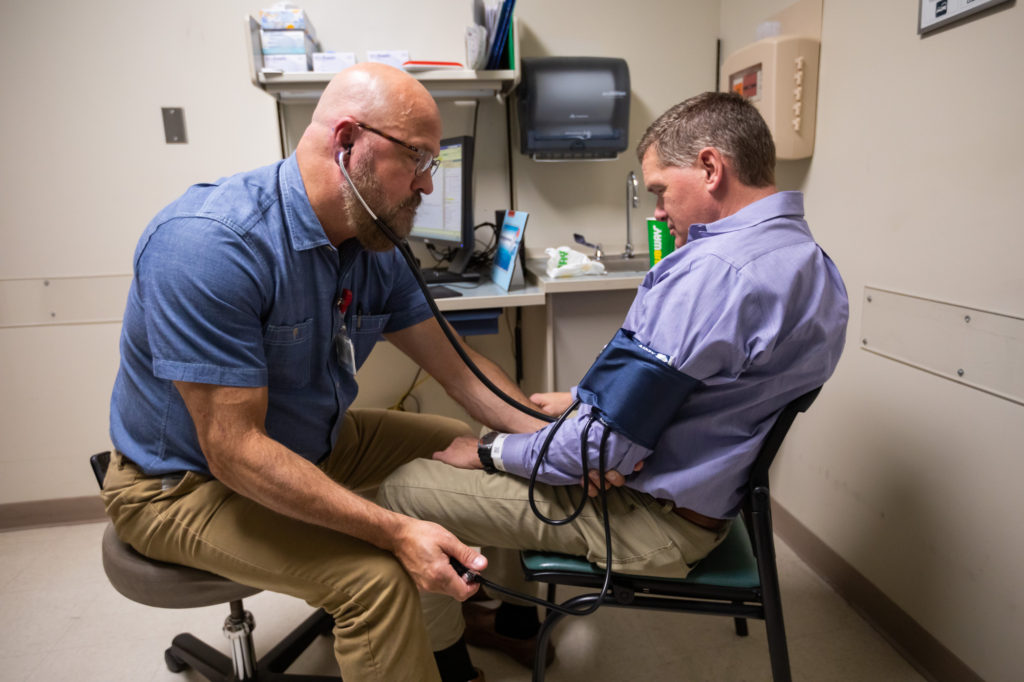
The University of Mississippi Medical Center TEAM (Trustworthy, Evidence-Based, Affirming, and Multidisciplinary) Clinic is designed to serve the LGBTQ community in Mississippi. It is a collection of different departments across the UMMC campus that operates on the first Friday of each month to see patients at one of their outpatient locations.
The clinic does primary care for members of the LGBTQ community and is currently working to grow and improve the array of services that they have for patients. They are sponsored by the Center for LGBTQ Health at UMMC, focusing on clinical care, education work, and research.
“We’re here at the university to serve all three million people who call Mississippi home, and there are no exceptions to that. We don’t turn anyone away. We want to be there for the entire population, and that includes the LGBTQ population,” said Dr. Scott Rodgers, Professor and Chair of the Department of Psychiatry and Human Behavior at UMMC.
The TEAM Clinic will be using the LGBTQ Fund of Mississippi grant money to provide clinical services to patients in need and to help them offset medical expenses when insurance doesn’t cover their services. The TEAM Clinic developed out of a need for more specialized LGBTQ health care options in the state of Mississippi. Their mission is to provide high quality care that improves the lives of LGBTQ individuals.
“In healthcare, there’s often a fear among LGBTQ people of being out at the workplace, around family, and, unfortunately, around their physicians and other health care providers. There are plenty of examples of health care providers in Mississippi who do not judge LGBTQ patients and who are very affirming and supportive, but there’s still this fear among the community that you can’t be open, out and authentic when you go and talk to your doctor,” said Dr. Rodgers.
“In the area of mental health, we see higher rates of problems like depression, anxiety, suicidal thoughts and behavior, and substance use disorders, and the highest risk group in the LGBTQ population involves trans youth, where we have alarmingly high rates of suicidal ideation and behavior. The clinic, its presence and its openness, sends a powerful message that we are here for you, we are not going to judge you. You may come here and receive help, and you can tell us your story and you can be open and honest. We’re going to do as much as we can to be helpful to you,” said Dr. Rodgers.
“We’re trying to do everything we can to educate the population here, both non-LGBTQ and LGBTQ. This is a marginalized population that faces harassment, discrimination, bullying, and victimization. It’s important to send a strong, positive, inclusive message to this group and to the surrounding community. We need to be allies. We need to be in this together, and in support of one another.”
The TEAM Clinic offers specialized services that promote the physical and mental well-being of LGBTQ individuals, like primary care, gender affirmative medicine and hormone therapy, HIV/STD screening and treatment, and behavioral health services, including therapy and medication management.
“For many of us who have been called to healthcare, the original reason for doing so was about service. It was about taking care of people. If you take that mission seriously and you become more aware of the disparities that exist in regard to sexual minority groups, you realize that as a healthcare provider working in Mississippi, you potentially have a role to play in trying to eliminate or reduce some of this inequity and some of these healthcare disparities,” said Dr. Rodgers.
“I want people to have compassion for all human beings, including LGBTQ people. I also hope that we can influence the way LGBTQ people think about themselves. I think about young people who are looking at their lives and feel very alone, and they feel like there is no hope for them. I hope that stories like this, and what the LGBTQ Fund is doing, and what our clinic is doing, I hope that people will hear about this and feel just a glimmer of hope. Just experience that for a moment. And that’s enough to be life-saving sometimes,” said Dr. Rodgers.
“The vision is for people who are LGBTQ to feel that they are equal to everyone else and that they are valued like everyone else. That their health matters, like everyone else. I want the population here in Mississippi to thrive and feel that their life has meaning and purpose,” said Dr. Rodgers.
To schedule an appointment with the TEAM Clinic, call (601) 984-2644. The clinic is located at Riverchase Medical Building: 2550 Flowood Drive, Flowood, MS 39232.
For routine, non-confidential, non-emergency information, email the TEAM Clinic at TEAMClinic@umc.edu. To learn more, visit their website or view their list of resources.
Grantee Spotlight: Delta State University’s Safe Spaces Program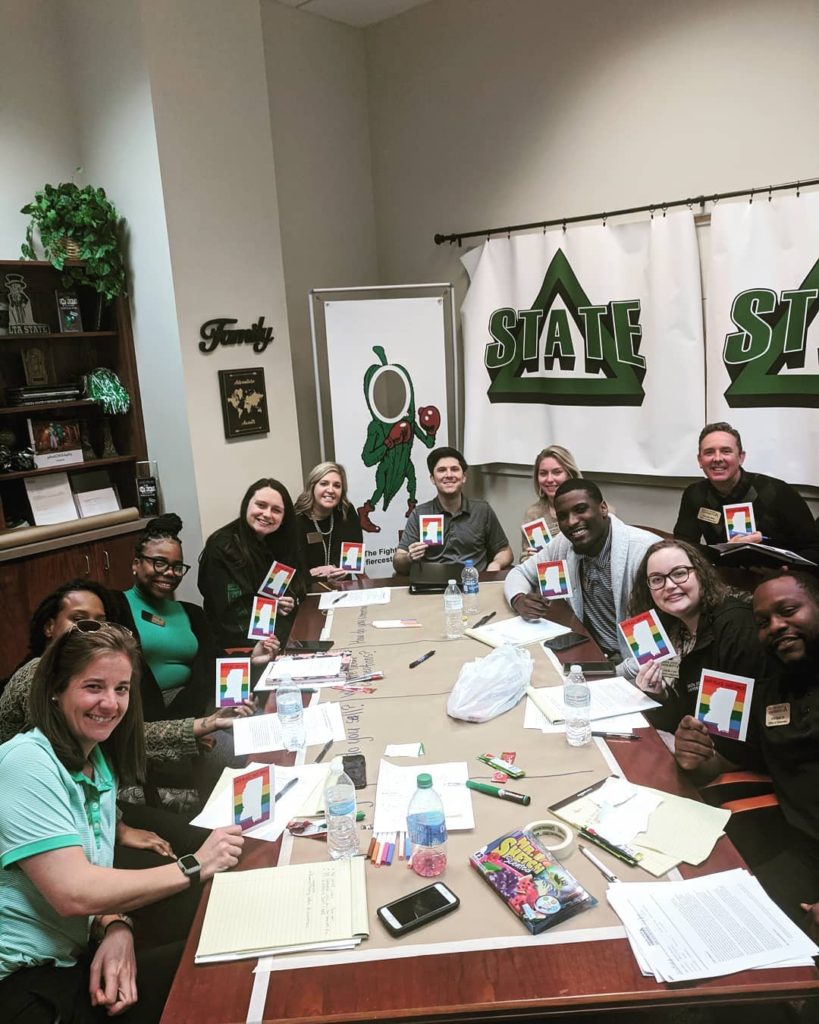
The Safe Spaces Program began at Delta State University in 2014, providing training for faculty and staff on how to be a better ally to the LGBTQ community. The program went dormant until last year, when Jacqueline Goldman, Ph.D, Assistant Professor Psychology, was given the task to revive the program.
The purpose of this program is to teach faculty, staff and students at Delta State about things like gender and sexual identity, homophobia, and being an ally for the LGBTQ community. Goldman altered the focus of the Safe Space Program slightly, still providing competency training but opening it up to the larger community in Cleveland. The money from the LGBTQ Fund of Mississippi grant will be used to purchase promotional materials for the program and to incentivize attendance to the training.
“My biggest obstacle was how to get people who wouldn’t otherwise come to decide that this is going to be something that they’re interested in. My answer to that is merchandise. You can get a t-shirt, a pen, a sticker. I also often provide lunches. I’ve had some departments offer to host me and give up one of their staff meetings for me to talk to them, so I provide lunch. People are more likely to come,” said Goldman.
With these training sessions, Goldman hopes to create a safe space for students to feel supported. The sessions are a place where people can discuss current political and social issues that LGBTQ people are facing in Mississippi. During the training, Goldman also gives scenarios and solutions, with the hope that people will take that training to the community. The training also includes a portion called “Asking for a Friend,” where people can anonymously submit questions that Goldman answers in the training.
“I always tell people that college is teaching lifelong learners. We’re a very rural school and some people are learning to critically think for the first time. It’s a place that should be a safe place to explore your identity and figure out who you are. Our campus should allow students to explore what that means, especially for their sexual orientation, and know that they’re celebrated and supported. At college, it’s a safe place to start, because usually people at a college institution or a higher ed institution are a little more progressive or open. It’s a good place to start the conversation,” said Goldman.
“When I first moved here, someone told me that the Delta is a very hard place to be, but it’s an important place to be. We don’t have the millions of dollars and big government infrastructure to help us do these things, and so the people who are doing it are really sold on the cause and are so passionate. It feels authentic. My wife and I have talked about this — when we came to Delta State, it was important for us to be seen. It was important for people to see that we’re normal. That’s another thing with these movements. We’re a part of this community and want to invest in this community and make it better for everyone,” said Goldman.
Goldman hopes that when people go through the Safe Spaces Program training sessions, they realize that they shouldn’t feel bad because they weren’t already informed about LGBTQ issues beforehand. These training sessions are in place to educate people and to make a space for people to ask questions and give people the resources they need, so that Delta State can continue to be a welcoming and inclusive place for LGBTQ people.
“It’s okay to not know everything. I don’t know everything. I’m constantly learning. It’s okay to struggle and be confused, but I want people to sit in that unrest and really try to be better. Take the steps to educate yourself. It’s okay to ask questions. If you’re trying, that’s what’s important,” said Goldman.
For more information, visit Delta State University’s website.
Grantee Spotlight: Grace Christian Counseling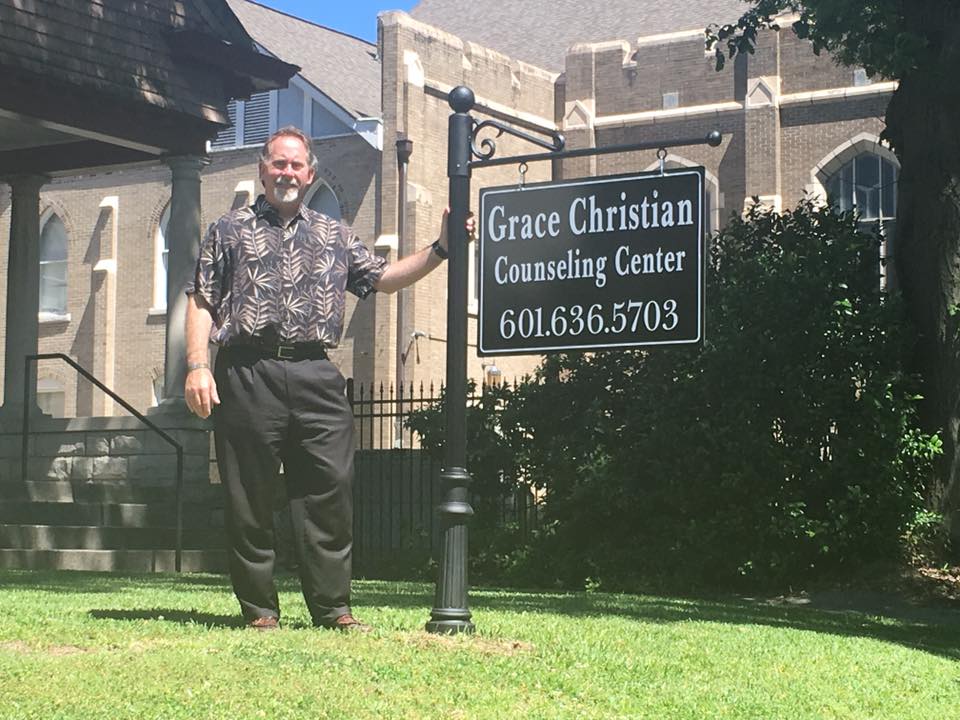
Grace Christian Counseling is a nonprofit professional counseling service addressing issues ranging from marital and family challenges to mental health-related disorders.
Grace Christian Counseling will be using the grant money from the LGBTQ Fund of Mississippi to increase marketing for their services, increase access to people all over Mississippi through telehealth, and provide LGBTQ support groups.
“We tend to create group counseling services, particularly targeting LGBTQ-identifying persons, and we want to put ourselves in places where we can share with people what we do and what our services are. We want to connect and network across the state with organizations and individuals that are allies or who identify as LGBTQ members, so that we can get the word out that we are a safe place to go. We are prepared to provide care, support, empathy and understanding for all persons, but particularly LGBTQ,” said Walter Frazier, Executive Director at Grace Christian Counseling.
Grace Christian Counseling Center was founded in 1998, with the support of three different churches in Vicksburg. They have offices in Port Gibson and Canton as well, all supported by local churches.
“We want to make sure that people understand all religions in Mississippi are not against them. Grace Christian Counseling is a place that provides a service of love and compassion and meeting people where they are. We love and care for all people because they’re people,” said Andrew Breland, counselor at Grace Christian Counseling.
They are expanding telehealth services because many areas in Mississippi are underserved by mental health providers. Many providers have switched to telehealth services during COVID-19, but Grace Christian will continue services after the pandemic.
“We’ve got to find a way to make a difference in the state of Mississippi for all people who are in need of professional, quality, cost-effective counseling services,” said Frazier.
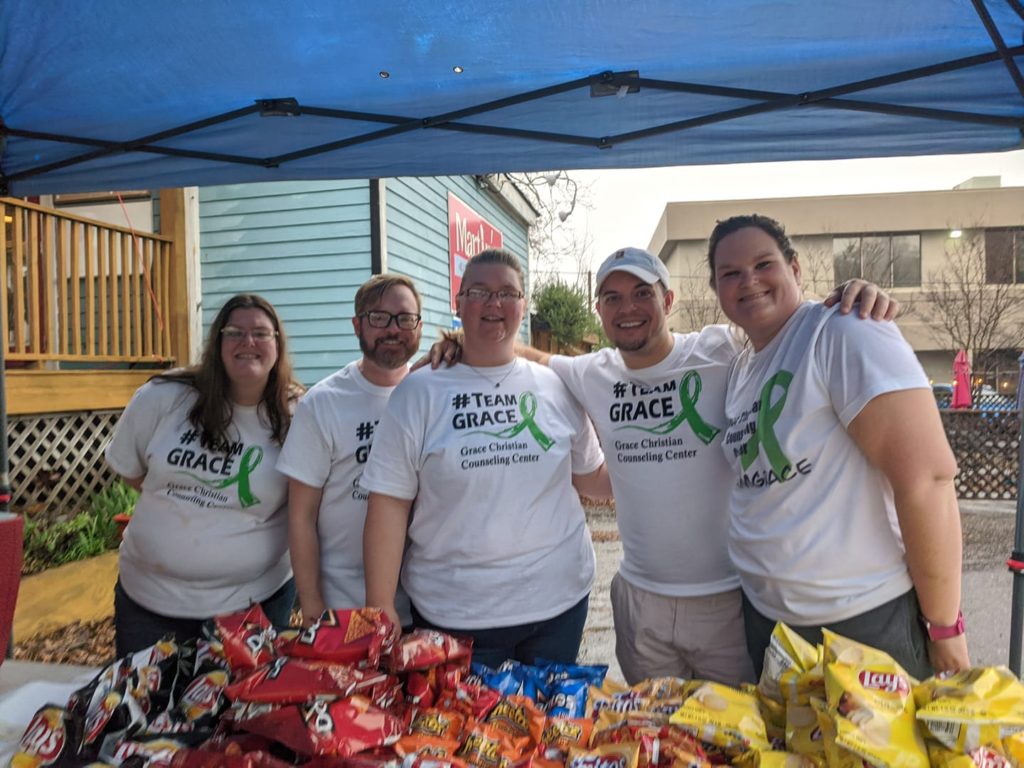
Based on the LGBTQ Fund of Mississippi Needs Assessment, mental health issues like suicidal thoughts, depression, and anxiety are especially prevalent for people in the transgender community.
“I think that the general public also doesn’t notice that maybe there’s not a mental health professional in a certain town, but there is one 25-30 miles away. Sometimes that travel gap, or just knowing that providers are not close, prevents someone from receiving care. But telehealth closes that gap,” said Anna Sanders, a clinician at Grace Christian Counseling.
“This is our community, and change isn’t going to happen at the direction of folks from outside of Mississippi. We’ve got to support change from here. People don’t make a transition from their thinking, their understanding, their valuing of others because of what they see on television as much as they do when it’s a friend, a neighbor, a professional,” said Frazier.
“We want to make sure that clients feel loved and by feeling loved they can love themselves, and in turn they can love others and care for others,” said Breland.
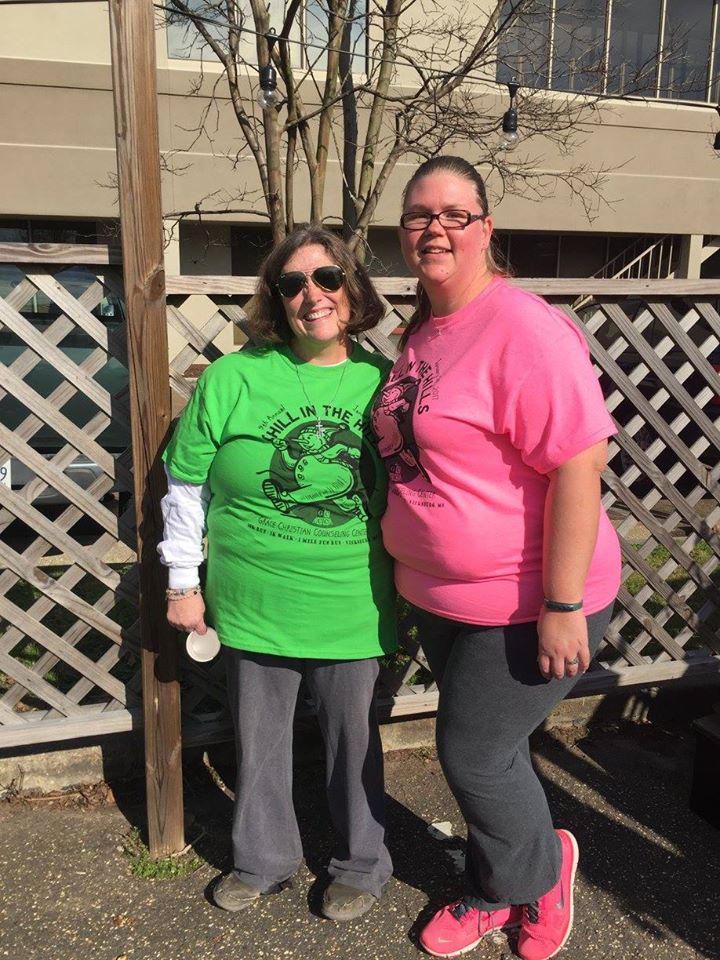
“It just takes one person and one organization to stand tall for the LGBTQ community, to make a difference in the community. I think a basic value of the Christian tradition is that we’re called to be a safe place for the marginalized, to hear those that are not heard, to care for those that have been harmed, and so to continue even to stand as a bystander to those within religious communities that continue to ostracize LGBTQ community is just, to me, a conflict with the basic call that Christ has called to Christians,” said Frazier.
Grace Christian Counseling is available for in-person and virtual meetings with groups, individuals, or leaders and is also available to speak at events or to groups. They also have a referral base of medical professionals that are allies to the LGBTQ community, who are prepared and trained to provide those services. For more information, call 601-636-5703 or visit their website.
Grantee Spotlight: Youth Improvement Services
Youth Improvement Services is a nonprofit based in Jackson, Mississippi that began in December of 2018 to assist youth, especially in the LGBTQ community, who experience homelessness. YIS provides housing and offers support services and skill training. They are currently doing outreach to find sponsors to provide funds and resources to assist with acquiring more housing.
The grant from the LGBTQ Fund of Mississippi will help Youth Improvement Services provide emergency housing for LGBTQ people, especially transgender youth, aged 18-24.
“There was a study conducted by the LGBTQ Fund and Mississippi State University that identified that transgender youth have an urgent need for housing. So, we have been filling that gap,” said Deroll Barrett, Executive Director of Youth Improvement Services.
Barrett taught for Job Corps, a program for 16-24 year old youth, for fifteen years. He realized that a large population of LGBTQ students needed job help, because a lot of LGBTQ youth faced adversity that affected their success in high school. Barrett also realized that a lot of them were homeless, including one of his mentees, and that inspired him to start researching solutions.
“Based on my research, there were organizations in Jackson and in the state of Mississippi that provided services to the homeless population, but not specifically to youth or LGBTQ youth. So, when it came to time for winter and summer breaks, these young people were homeless, and they didn’t have anywhere to go. We tried to reach out to shelters and other organizations, and it was just a brick wall. We knew that there was an urgent need in the community, and we decided to do something about it,” said Barrett.

“Just in general, LGBTQ people are treated as second class citizens in Mississippi, and some of them are disowned by their families and lack access to resources. Those circumstances may cause them to become homeless. I think this work is important because it will contribute to the most disadvantaged. It will set them on a path to improving their own lives and bringing in some mode of stability, so that they can become independent,” said Barrett.
Youth Improvement Services cares about the wellbeing of LGBTQ youth, and they are committed to providing solutions for LGBTQ issues. They partner with many different local organizations that serve the community in order to make life better for LGBTQ people in Mississippi. Their vision is to end homelessness for LGBTQ youth in the state of Mississippi, and empower youth by giving them the resources that they need to live independently.
“Myself being a gay man who migrated from Jamaica, living in Mississippi was a challenge. I think that the organization being in Mississippi, rather than coming in from somewhere else, is important because we’re able to directly respond to the challenges that exist in the state. We can become a part of the solution,” said Barrett.
Learn more about Youth Improvement Services and donate to their cause on their website, or visit their Facebook or Instagram.
Grantee Spotlight: Campaign for Southern Equality
Based in Asheville, North Carolina, Campaign for Southern Equality launched in 2011 with the mission to promote both legal and lived LGBTQ equality throughout the southeast, which they do through three core programs: the Legal Equality Project, the Southern Equality Fund and the Community Health Program.
For a long time, Mississippi has had one of the lowest rates of spending in the whole country when it comes to LGBTQ issues. The LGBTQ Fund of Mississippi is working with Campaign for Southern Equality to change that, and to give voices to unheard LGBTQ communities who are yearning for change and progress.
“We’re firm believers in the power of local organizing, and part of that means moving resources to peoples’ towns, especially places that have been historically under-resourced. As we do this work, we really prioritize making grants and moving funds that are led by people of color, transgender folks, and people in smaller towns and rural areas, recognizing that in all of those cases those people face greater structural barriers to accessing the resources and funding for their work,” said Jasmine Beach-Ferrara, Executive Director at the Campaign for Southern Equality.
“This grant will allow us to provide early stage grants and funding to folks in Mississippi who have an idea for a project that will help support LGBTQ equality, and our goal is to say yes to folks who have ideas and then to help them connect with the resources they need to turn those ideas into reality and action. We’ll provide grants and training, and as there are projects and groups out there who are ready for the next stage in their work, we’ll be a bridge for them into the LGBTQ Fund of Mississippi for opportunities for larger funding levels,” said Beach-Ferrara.
The primary goal for Campaign for Southern Equality is to achieve equality in every town across the south and across Mississippi. Historically, the challenge has been limited funding to LGBTQ individuals wanting to create change in their hometown.
“What that really requires is that LGBTQ folks take the very brave step of coming out in their hometown, and creating visibility and telling stories and organizing. There’s a lot of work to be done, and we believe that that work starts in peoples’ hometowns. More often than not, people are struggling to find the resources to launch these projects. What we try to do is say yes to people and we believe in you, and here’s some fuel in your tank to take this idea you’ve got and find out how to make it happen,” said Beach-Ferrara.
“What our work is about, first and foremost, is helping to create a south where LGBTQ people, and everybody, can thrive. That means living their lives with equality, with dignity, with the opportunity to pursue their dreams, and feeling like folks can claim the south as their home. They can be out and be authentic and not have to live in fear. That’s what’s at the heart of our work,” said Beach-Ferrara.
Campaign for Southern Equality’s work is rooted in commitments to equity and empathy: equity that includes making sure that we are thinking and acting and talking, particularly with issues of racial equity, and a basis of empathy in every interaction, including interactions with those who oppose the work they’re doing.
Learn more about the Campaign for Southern Equality by visiting their website, Facebook, or Instagram.
Grantee Spotlight: MSU Holmes Cultural Diversity Center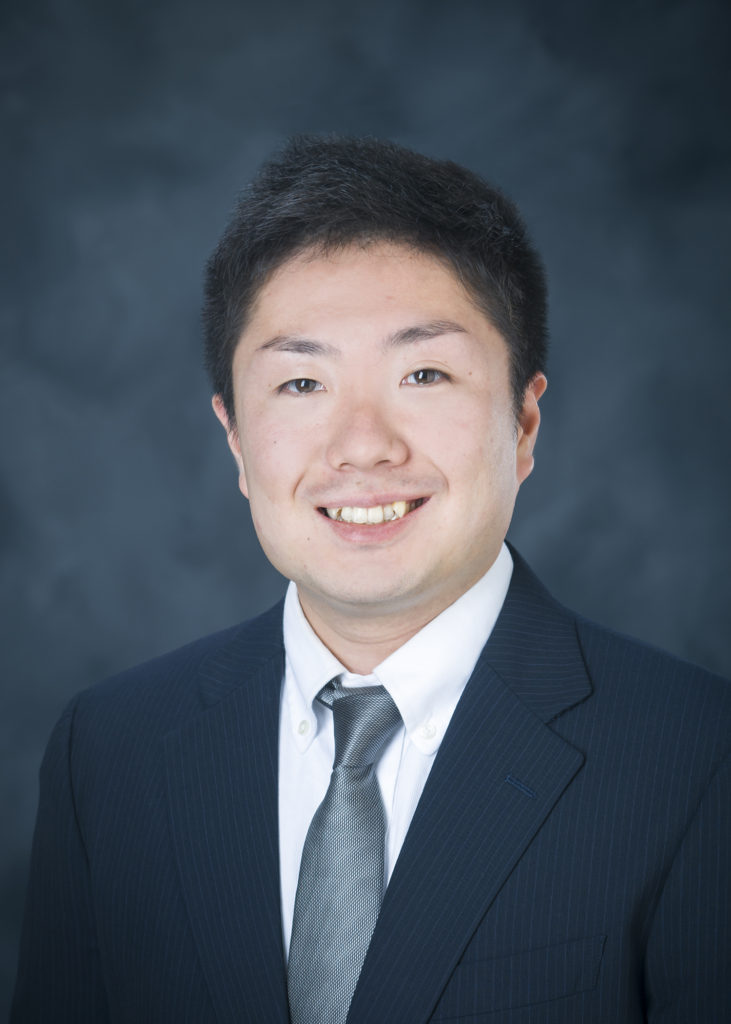
The Holmes Cultural Diversity Center at Mississippi State University helps underrepresented students succeed in college and in life post-graduation through various programs and training that are related to diversity, inclusion, and equity.
“I’ve been doing this work for a few years, and I noticed that especially LGBTQ+ students from Mississippi tend to have very negative experiences in their community, and they don’t have much understanding of the LGBTQ+ community or their identity. Our programs have focused on increasing allies and have not had many programs for LGBTQ+ students to develop knowledge about their community and their identities and to practice skills to build resilience to thrive in their life,” said Kei Mamiya, Assistant Director of the Holmes Cultural Diversity Center.
The LGBTQ+ Identity Development and Resilience Workshop, supported by the LGBTQ Fund of Mississippi, will be held each semester to help students better understand themselves and teach students about the intersectionality of different identities and skills in order to develop resilience.
The goal of the workshop is to not only help LGBTQ+ students gain self-confidence and learn self-worth, but also to raise awareness of the community in general and provide information for other people on how to support LGBTQ+ people on campus. For many college students, it’s their first time to interact with people from different backgrounds, which is why this program is so important — students get to learn about each other.
“I’m not from this country, so whenever I interact with students I sometimes hear, ‘You’re the first Japanese person I’ve met.’ A college campus is really important because it’s such a unique space, and it has a lot of opportunities for students to level up their knowledge. It’s already diverse, so we’re trying to make sure that whenever people interact with people from different backgrounds, they can be more respectful,” said Mamiya.
“For me, wellbeing [for the LGBTQ+ community] is definitely a long way away, and it will always be a process to make sure that LGBTQ individuals are comfortable and proud of who they are and not afraid to challenge oppression. That’s the ultimate goal. It’s also important to connect LGBTQ+ people across the state and create a community as well, making sure LGBTQ+ people can talk to each other and share resources.”
To learn more about the Holmes Cultural Diversity Center, visit their website or Facebook.
Grantee Spotlight: Mississippi Museum of Art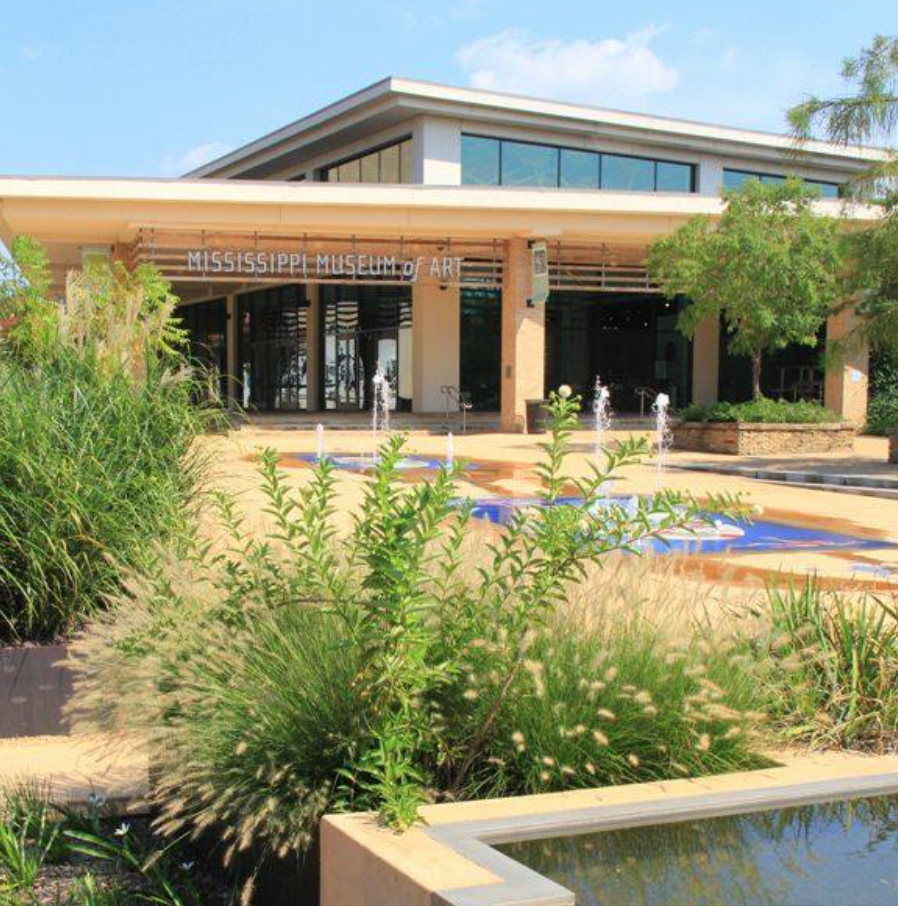
Committed to honesty, equity, and inclusion, the Mississippi Museum of Art engages art, artists, and participants in the critical work of reckoning with the past, connecting with each other in the present, and creating a future without division. Art sparks challenging conversations about race and equity, and the LGBTQ Fund of Mississippi is helping the Museum’s Center for Art and Public Exchange make that happen.
Part of the LGBTQ Fund grant money will be used for staff training to bolster the Museum’s understanding of LGBTQ issues.
“[The training] is going to teach staff about things like gender identity, gender expression. We’re working on how to make the museum a more welcoming institution in terms of gender justice issues. As a cis-gender woman, I don’t have those deep connections to the LGBTQ community here. I have some, but I am very conscious of the fact that I am not the point of authority on what it means to be LGBTQ, especially in the rural south. We thought it was really important to bring people together who have training from a point of expertise and perspective. Invisible Histories Project will be leading that training and those activities, and we will be convening in groups of local people that are active in the LGBTQ community that will partner with us,” said Monique Davis, Managing Director of the Center for Art & Public Exchange and Chief Equity and Inclusion Officer.
The rest of the grant money will be going to a virtual community mapping activity. People will be able to map out events like where they had their first coming out conversations, where they voted for the first time, where they saw their first drag show.
“The community mapping activity will do two things: it will honor an often hidden history and perspective, and it will provide a platform to have agency. It will highlight a lived experience and hopefully build bridges of empathy with the majority cis-gender culture and deepen the understanding of those experiences,” said Davis.
“Art has the power to change people, and art is a way to present different perspectives and opinions in a way that is non-threatening and doesn’t shame people. Art has the ability to move people into a different understanding and to shift people’s perspective, especially when you’re doing that in a community with other people,” said Davis.
“I’m hoping that what the LGBTQ community feels is welcome, and that they’re valued and seen and not ignored. We want to be in community and conversation with them. I’m hoping that this conversation is one that we can continue to have, and we will continue to share,” said Davis.
To get involved, sign up for the Mississippi Museum of Art’s email newsletter, or follow them on Facebook and Instagram. To learn more, contact Monique Davis through email at mdavis@msmuseumart.org.
Grantee Spotlight: Invisible Histories Project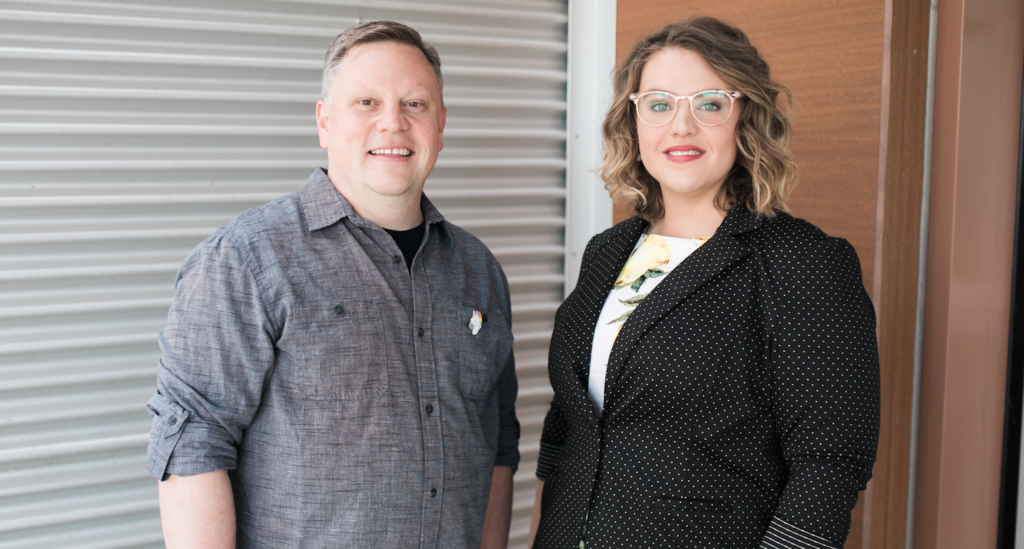
Invisible Histories Project is dedicated to the research, location, preservation and accessibility of LGBTQ history, specifically in the south.
Based in Birmingham, Alabama and founded by Joshua Burford and Maigen Sullivan, Invisible Histories Project is a 501(C)(3) that collects and archives LGBTQ history throughout Mississippi, Alabama and Georgia. They also run Queer History South, a network and conference of over 300 people across the country who are interested in southern specific LGBTQ history and archiving.
“As we’re very fond of saying, it’s very hard to know where you can go if you don’t know where you’ve been. Learning about our history is so vitally important to our sense of self, as well as community building, organizing, and movement building,” said Sullivan.
“There was a feminist women and lesbian’s bookstore called Southern Wild Sisters Unlimited in Gulfport that did a ton of stuff in the 90’s. It was [getting distributed] through the entire Southeast through mail-order catalogs. They also ran the Gulf Women’s Music Festival that led to a women and lesbian’s land ownership near Hattiesburg, like a commune. We want to go down and figure out what we can find out about Wild Sisters, and this grant will allow us to do that,” said Sullivan.
Invisible Histories Project preserves materials in Alabama, Georgia and Mississippi, and they have archival repositories with different universities, museums and libraries in each state as the permanent homes of the materials they collect. They will use LGBTQ Fund grant money to better their online archives and make everything more accessible through social media.
“We believe that communities should know their own histories, and the south is left out of LGBTQ history. When we talk about it, we’re talking about San Francisco, New York, Chicago, but we’re never talking about the deep south. And we want folks to know that the deep south is full of diverse and rich LGBTQ history. We want people to see that so they can understand where they come from, and what we’ve all been doing in the south,” said Sullivan.
“We wanted to make sure that we are investing first and foremost in these states that we care about so much as a way to reclaim our own narratives, and to show that, yeah there are a lot of problems, but there are also a lot of amazing folks doing amazing work,” said Sullivan.
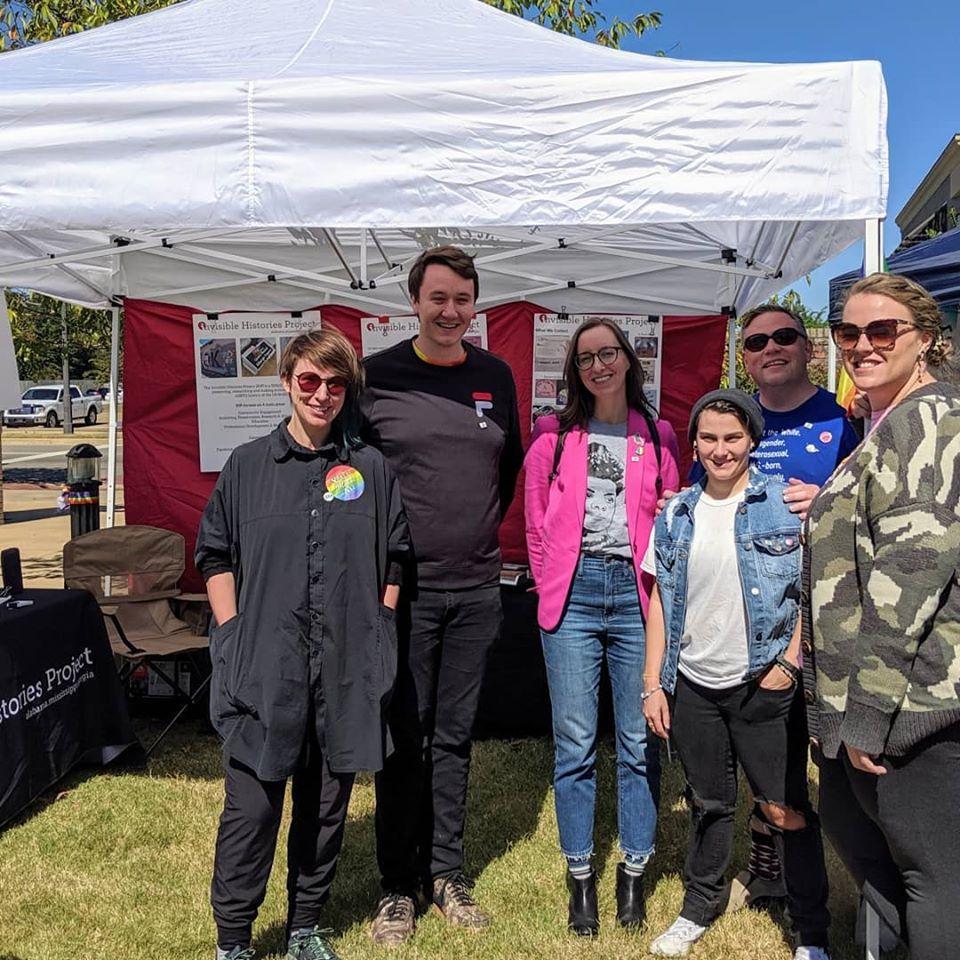
Often when people go to archives now, it tends to be difficult to find information about LGBTQ history, due to things like lack of accurate categorizations or current terminology. Invisible Histories Projects works to make it easier for people to locate LGBTQ history, so that people can share it, be excited about it, and learn from it.
“If you’re deciding you’re going to do something and you’re the first one to do this sort of organizing, it’s really scary and it’s very hard. If you can look back in the past and see that people have been doing this work, that there are formats and ways and things that people have learned, then it’s much easier for you to feel confident and to learn from the past,” said Sullivan.
If you have collections or resources for southern LGBTQ history, you can archive content at home through the Invisible Histories Project’s website, email contact@invisiblehistory.org, or reach out to them on Facebook or Instagram.
“Southern LGBTQ history is real, and it’s rich, and it’s always been there. We’ve always been here, even though it looks very different, but we don’t have to measure ourselves by the east coast and the west coast. By the huge urban centers. We don’t have to use that as our benchmarks for success. Our success can be small. It can be in our households, our neighborhood. We can look back on our histories and think of ourselves currently as historic and important, in order to create our own idea of what success and movement mean. We don’t have to look outside, we can look within,” said Sullivan.
Your support allows us to distribute more funds to where they’ll have the most impact in Mississippi.
Donate